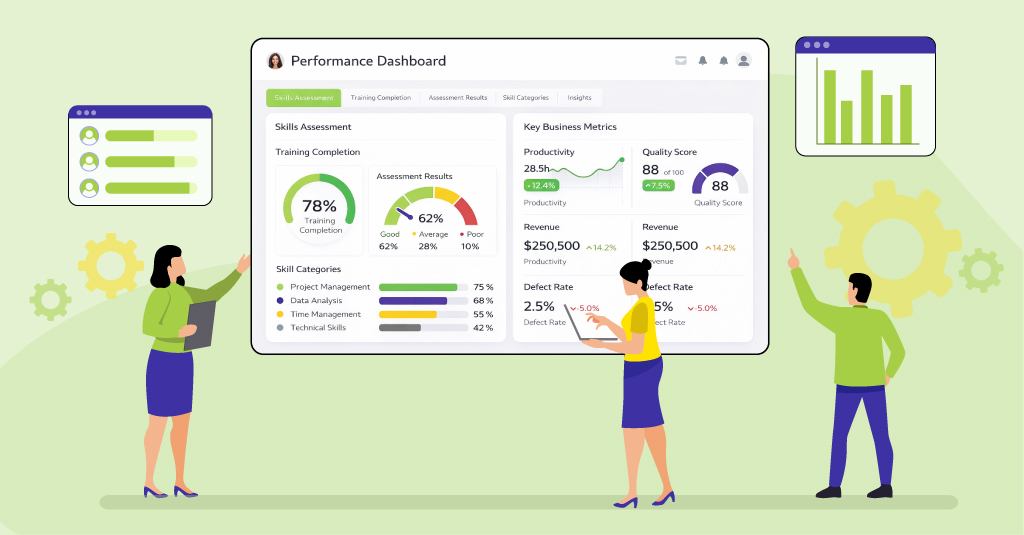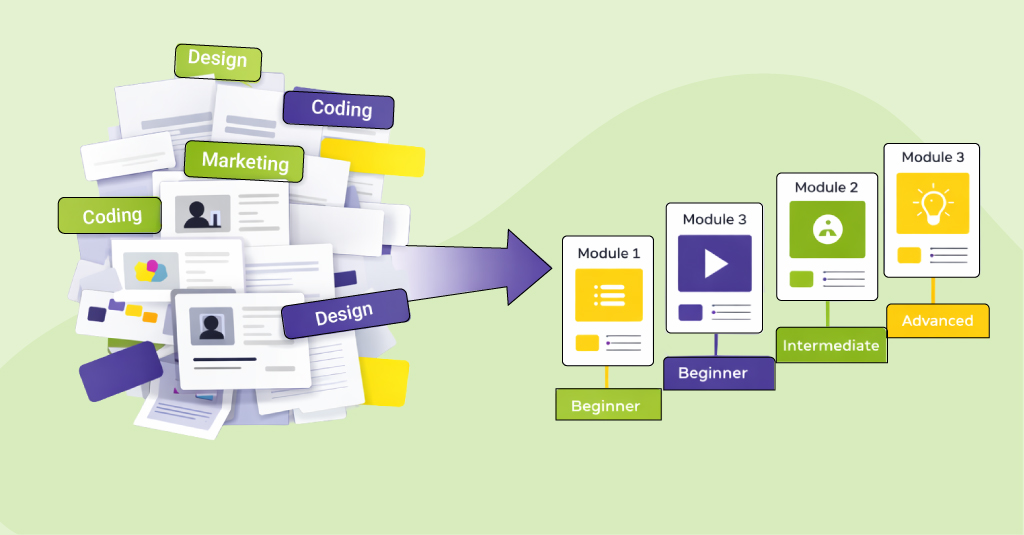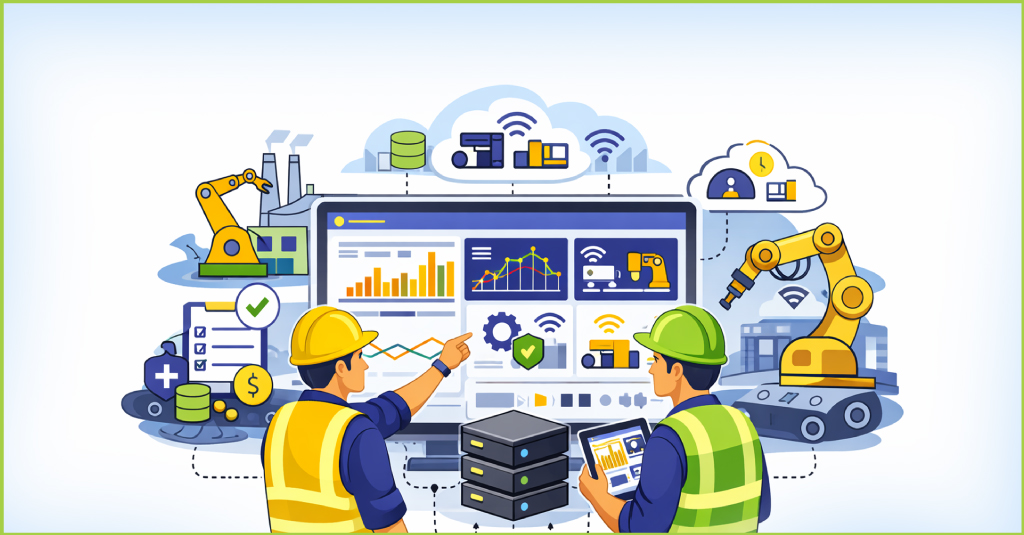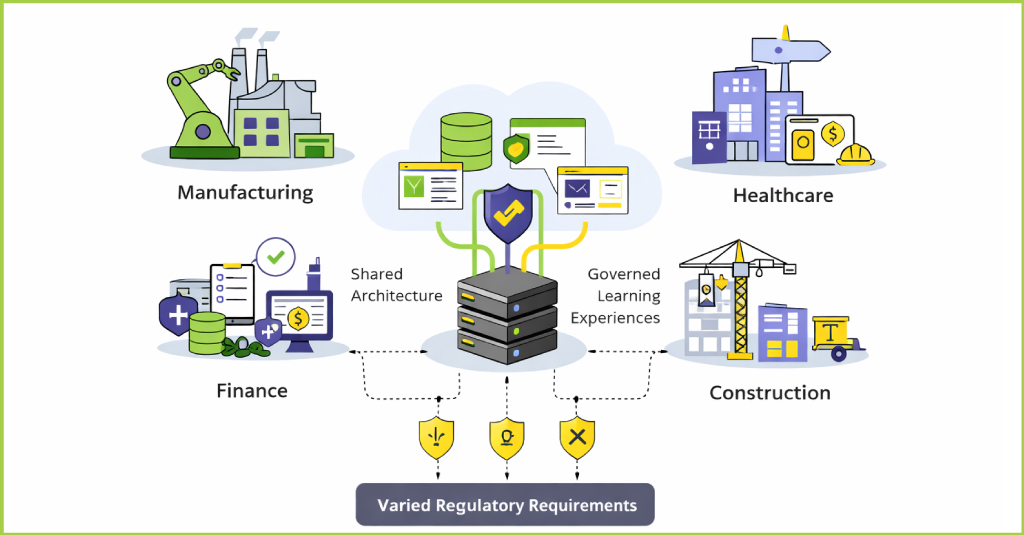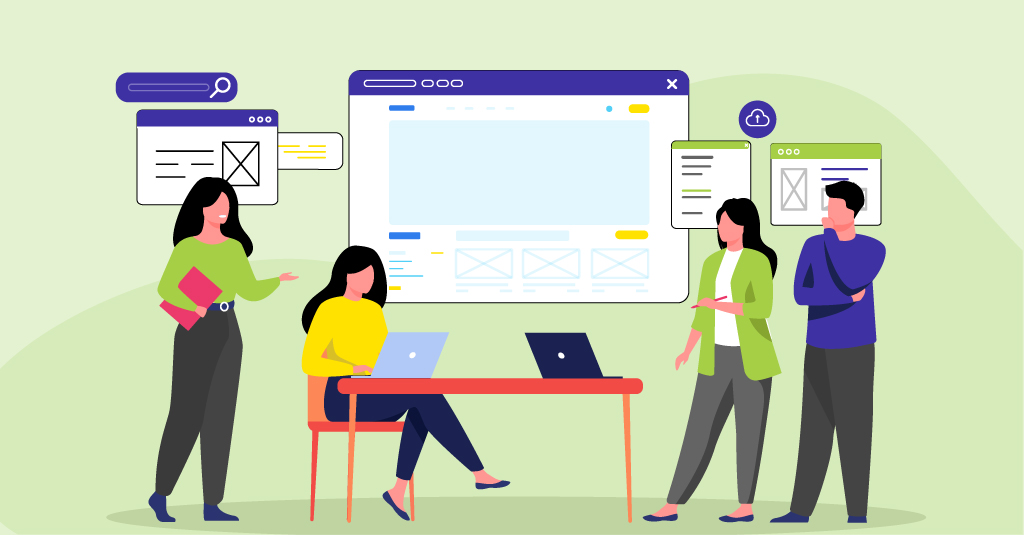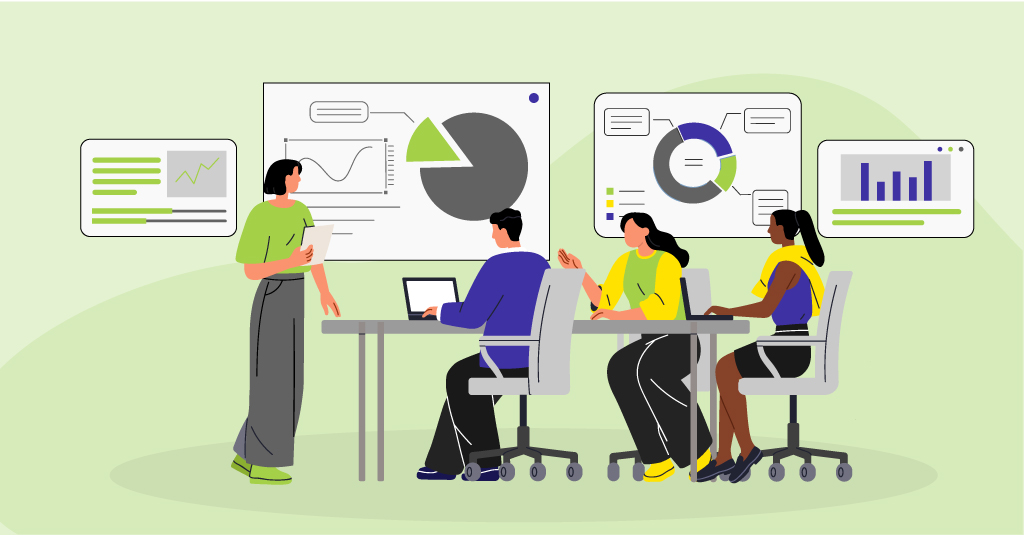“A strong strategy connects the dots between what”
Once we’re clear on what success looks like, the next step is to plan how we’ll get there. This is where we design a learning strategy that feels practical, engaging, and meaningful—one that fits your people, your business context, and your learning goals. A solid strategy makes sure that learners don’t just consume content, but that the content helps them do something better at work. This is about designing with intention, with the end result in mind.
Here’s how we break it down.
Align Goals and Expertise
We start by working closely with your team, not just L&D, but business leaders and managers too. We want to understand your workforce data, capability frameworks, skill gaps, and talent development goals. This helps us design learning that supports real business priorities and reflects the realities of your people’s work. We act as your learning partner, not just a content producer—bringing our design expertise to the table while building on your internal knowledge and insights.
What result does the business want to see?
What do employees need to do better or differently to achieve that?
What specific capabilities need to be built to support these skills?
Craft an Impactful Learning Blueprint
We map learning pathways: what foundational knowledge comes first, where we build depth through examples and non-examples, and how we test for understanding and application through real-world scenarios. This blueprint also includes the formats (videos, live sessions, toolkits), the pacing, and assessment strategies.
Awareness ➙ Exploration ➙ Practice ➙ Performance ➙ Reflection
Design Meaningful Learning Experiences
This is where learning truly comes alive. It’s not just about delivering information, it’s about crafting experiences that learners can connect with, remember, and apply. Instead of lengthy explanations and text-heavy screens, we design activities that reflect real workplace challenges. The goal is to make learning feel relevant and actionable from the very beginning.
We use research-backed techniques such as scenario-based learning, short sims, branching decision paths, and roleplays to put learners in the driver’s seat. These methods trigger reflection, reinforce concepts, and build confidence in applying new skills. When learners engage with content that feels like their day-to-day work, they don’t just retain knowledge—they develop the ability to use it when it matters most.
Real performance goals determine what piece of content will be included. We also consider performance support tools such as job aids, checklists, and practice guides that support applications beyond the training. By designing with the end-user and the workplace context in mind, we ensure learning is not just meaningful, it’s measurable.
We are here to support you every step of the way, to take your learning interventions from the conventional approach to an impact-led approach.
Here is what you can expect.
The Conventional Approach: A 30-minute eLearning module featuring video lectures of the SME, and content explainer screens, followed by a final assessment.
The Impact-Led Approach: A learning experience comprising a context-setting video, scenario-based activities, a real-world challenge, and a reflection activity
scroll right to read more.
| Aspect | Conventional Approach | Impact-Led Approach |
|---|---|---|
| Learning Format | Static explainer screens and SME video lectures | Contextual videos, scenarios, challenges, and reflections |
| Learner Engagement | Passive consumption | Active participation |
| Application of Knowledge | Limited to quizzes and recall | Encourages practical, on-the-job application |
| Design Complexity | Straightforward, content-driven | Requires thoughtful design and collaboration |
| Time to Develop | Faster and easier to produce | Takes longer but delivers deeper impact |
| Learning Outcome Focus | Completion and assessment scores | Behavior change and performance improvement |
Offer Flexible Learning Environments
We design with flexibility in mind and create a mix of formats—online modules, live workshops, on-the-job assignments, even podcasts—so learners can engage in ways that suit their schedules, preferences, and roles. This inclusivity builds learner ownership and drives better participation.
Here are some of the modalities we consider driving learning impact:
Digital Learning
Byte-sized Mobile Learning
Short, snackable content designed for mobile use—perfect for learning on the go.
Virtual Instructor-led Training
Live, interactive sessions led by facilitators—great for real-time discussions and collaboration.
Peer Learning
Learning through discussion forums, or collaborative problem-solving.
Job Aids
Quick-reference tools, checklists, and how-to guides to support learning at the point of need.
Spaced Retrieval Practice
Follow-up practice activities that reinforce learning over time.
Simulations and Scenarios
Interactive activities that mimic real-world challenges.
Audio Lessons and Podcasts
Voice-based learning for hands-free environments—great for multitasking.
Explainer Videos and Animations
Short, engaging visual explanations of complex or abstract concepts.
Build a Monitoring and Insights System
With the organization’s help, we identify what systems already exist—like LMSs, feedback channels, or performance dashboards—and how we can use them to track learning impact. We decide what metrics to capture (engagement, skill confidence, knowledge application), when to check in, and how we’ll use that data to refine the program or future learning interventions. The idea is to build a feedback loop beyond simply collecting numbers for a report.
We don’t just track if people finished the training—we look at what changed because of it.
Completion: Tracked regularly through the LMS to see who’s engaging with the learning.
Confidence Shift: Measured through a simple pre- and post-survey to understand the mindset changes.
Application: Collected through manager feedback about on-the-job behavior at regular intervals after the launch of the training or learning intervention.
Challenges: Captured through quick learner pulse checks along the way to help identify barriers early on.
Onwards to Phase 3:
Designing with intent means establishing a clear, thoughtful path from learning need to business impact. When strategy and structure are built in from the start-and when they’re grounded in your context-learning becomes a lever for performance, not just a box to check. Our job here is to co-create a plan that works for your business; more importantly-your people-and delivers real outcomes.
With a clear strategy and thoughtful design in place, it’s time to shift focus from planning to people-by creating early engagement and curiosity before launch.
A well-crafted strategy ensures that learning isn’t just content delivery, it’s capability building, aligned to the outcomes that matter most to your business. By mapping the path with intention and designing experiences that reflect the realities of your people’s work, you set the stage for learning that drives real impact.
To explore the complete Impact Framework with practical tools, techniques, and real-world examples, download our new eBook: Beyond Training: An Actionable Guide to Learning That Delivers Measurable Business Impact. Whether you’re leading L&D in a fast-paced enterprise or supporting change in a growing organization, this guide is designed to help you move from learning intentions to business outcomes—step by step.
Start building smarter, outcome-focused learning today.
Curious what it takes to make learning truly move the needle? Click the button below to connect with us and co-create learning experiences that engage and deliver measurable learning impact.




